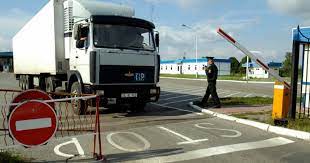Date of publication: 12 July 2016
Olena Omelchenko, Partner, Attorney at Law, Head of International Trade Practice
Source: Ekonomichna Pravda
Decree of the President of Russia No. 319 of July 1, 2016 introduced a temporary ban on road and rail transportation of Ukrainian goods.
It refers to the goods in respect of which the Russian Federation applies the rates of import customs duties different from zero.
In addition, it provides for the introduction of special transit conditions of Ukrainian goods to the territory of the Republic of Kazakhstan and the Kyrgyz Republic.
Limitation of transit is connected with extension of food embargo and suspension of the CIS free trade agreement on the part of the Russian Federation until the end of 2017.
As reported by the State Statistics Service of Ukraine, in 2015 exports from Ukraine to Kazakhstan amounted to USD 713 mln, to Kyrgyzstan – USD 46 mln.
The main nomenclature of export goods from Ukraine to Kazakhstan and Kyrgyzstan are food products, including confectionery products, and furniture, construction materials, nuclear reactors, boilers, electric machines.
From the whole range of Ukrainian exports transit will be possible only for products that do not fall under the embargo and are subject to a zero rate of import duty set by the EEC common customs tariff.
Thus, the bulk of transit of Ukrainian goods in the territory of Kazakhstan and Kyrgyzstan through the territory of Russia will be limited until the end of 2017. Taking into account a significant reduction in deliveries to the Russian Federation loss of the Kazakhstan and Kyrgyzstan markets is extremely undesirable.
The government of Ukraine should make a decision that would minimize the consequences of such a move on the part of the Russian Federation for the Ukrainian economy.
Most likely, the Cabinet will be consistent and extend the previously introduced ban on imports from the Russian Federation. It cannot be ruled out that the list of goods may be revised and expanded. Further prolongation of Ukraine’s bound rates within the WTO in trade with the Russian Federation should be expected.
Ukraine is unlikely to limit transit of goods from Russia. It will affect the interests of the EU and encourage reorientation of transit flows through Belarus, which is fraught with additional economic effects.
In addition, Ukraine itself will violate the principle of freedom of transit, and it will complicate its position during challenging of RF actions in the WTO.
Even if we assume that Ukraine considers transit restrictions, it is limited only to the Russia – Moldova direction considering a unilateral illegal introduction of tariff quotas on the part of Moldova on the Ukrainian cement and food.
Thus, the issue with the Russian Federation will not be resolved, but the dialogue with Moldova is possible, which will enable the parties to return to the legal framework envisaged by the CIS free trade agreement.
How to resolve the situation with the transit restriction?
Settlement of the problem lies in the political rather than the legal field and is connected with the geopolitical processes. Thus, we should not expect that the problem will be resolved quickly and easily. The companies that will suffer damages must seek alternative ways out of the situation.
The transit restrictions may be removed only through bilateral agreements or dispute settlement in the WTO.
In the first case, the situation is complicated by the lack of regular bilateral trade dialogue between Ukraine and Russia at the highest level.
Therefore, support should be sought from Kazakhstan and Kyrgyzstan as the major countries that are affected by the transit ban. The more especially as the EEC has no consensus of all countries regarding restrictions.
It is necessary to discuss with the European Union the expediency of resumption of the tripartite dialogue EU-Ukraine-Russia and record the violation of international rules.
In the second case it will take about two years to challenge the restrictions in the WTO. In this case there are no guarantees that the Russian Federation will be willing to execute the decision approved.
It is worth challenging the transit restrictions in the WTO. The actions of the Russian Federation clearly evidence violation of the principle of non-discrimination and Article V of GATT 1994, which provides a commitment of WTO members to ensure the freedom of transit.
It should be expected that Ukraine will soon raise the problematic issue at the Council on Trade in Goods or the WTO General Council, and then submits a request for consultations with the Russian Federation as part of the WTO dispute settlement mechanism. It will be the best legal way in the current situation.
